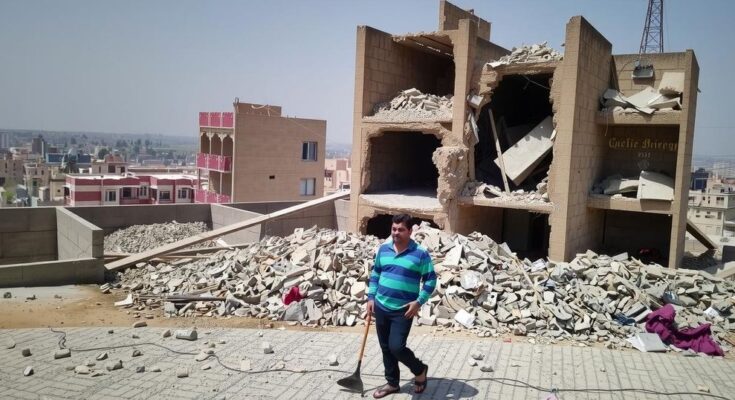The Israeli military is accused of exploiting a ceasefire with Lebanon to escalate demolition activities in southern Lebanon, including entering the town of Bani Hayyan. Ongoing violations of the ceasefire have been reported, and the situation remains tense amid aggressive military operations and settler incursions, raising serious concerns about the future of peace in the region.
The Israeli Defense Forces (IDF) have reportedly abused the recent ceasefire with Lebanon to intensify their demolition operations in the southern region, particularly in areas previously inaccessible due to military engagements with Hezbollah. On December 18, IDF forces entered the town of Bani Hayyan, performing demolitions of residential properties and other structures. This aggressive action came despite ongoing commitments under the ceasefire agreement established on November 27, which necessitates Israeli troop withdrawal within 60 days.
Visual evidence from social media depicts Israeli tanks and bulldozers demolishing structures, while reports indicate the dismantling of homes across multiple southern villages, including Tyre Harfa and Al-Jbeen. This escalation follows the increased military presence of Lebanese armed forces in compliance with UN Resolution 1701, aimed at dismantling Hezbollah’s military infrastructure in southern Lebanon.
Despite the ceasefire, Israeli forces have engaged in numerous violations, reporting over a hundred attacks involving airstrikes and troop advancements since the announcement of the ceasefire. Additionally, on December 17, an Israeli drone strike injured civilians in Majdal Zoun, and a group of settlers violated borders, infringing on Lebanese territory. This incident has raised serious concerns regarding Israeli operations in the area, particularly in areas marked as military zones.
The context of these actions traces back to significant hostilities between Israel and Hezbollah, which resumed in October. The Israeli military has declared that a Hezbollah tunnel used for orchestrating rocket strikes against Israel was discovered and subsequently destroyed. Such encounters underscore the ongoing tension and conflict despite recent diplomatic efforts.
The article delineates the ongoing conflict dynamics between Israel and Lebanon, particularly highlighting Israel’s military activities in the context of a ceasefire aimed at stabilizing the region. The ceasefire was established after intense battles between Israeli forces and Hezbollah, and its integrity is critical for both parties as they seek to navigate the aftermath of hostilities. The provisions outlined in UN Resolution 1701 call for the withdrawal of Israeli troops and the disarmament of militant infrastructure. With repeated violations reported by both sides, it remains unclear how long the ceasefire can be maintained. Regional peace has been further destabilized by Israeli settler groups incursion into Lebanese territory, exemplifying the complexities within Israeli-Lebanese relations and the persistent threats posed by militant factions like Hezbollah.
In summary, the ceasefire agreement between Israel and Lebanon has been significantly undermined by Israeli military operations in southern Lebanon, including demolitions and cross-border incursions by settler groups. Despite the objective of establishing peace and stability as outlined in UN Resolution 1701, repeated violations raise serious concerns about the future of the ceasefire and the potential for renewed conflict. The actions of Israeli forces, alongside the inherent tensions with Hezbollah, depict a volatile situation requiring careful diplomatic engagement moving forward.
Original Source: thecradle.co




